How to Choose Eggs
TESTIMONY OF THE DAY
“Thank you Maria, in just 7 months in, I am down 65 pounds. Feeling great, sleeping sooooo much better, loving wearing clothes in a loose 14 – down from a tight 22!!!
I can say that now, but at the time was so depressed about the weight, I could hardly confess to my husband how much I weighed. I have 35 pounds yet to go, as a goal weight, but hopefully 45 eventually. Bless you for all you do to help so many! Sorry for the bad photo shopping!!!:) be blessed” – Pat
Most people I consult are doing keto totally wrong. Get fast results with the my Mind-blowing Keto School!
Click HERE to check out my supplement plans!
HOW TO CHOOSE QUALITY EGGS
The common egg question is how to choose quality eggs?
This is something that often confused me in the past. Eggs are seriously my favorite food. I was such a bone-head in my early career that I would use the whites only! Even in college, when money was tight, I would toss those beautiful yellow yolks in the garbage. How sad and detrimental those fat-free lies are. Yolks have choline , healthy fats and some serious flavor!
I love eggs because they are cheap, convenient and keto food; even for keto vegetarians! But choosing eggs from either a store or a farm involves examining what the chickens have been fed, how they are living and how the eggs were harvested. Choosing high-quality eggs will make your cooking more appetizing and nourishing, as well as more beautiful. While the majority of eggs on the market are not specialty eggs, an increasing number of markets now offer organic, free-range and omega-3 enriched eggs. Understanding the differences between these labels will help you to choose eggs of the highest quality.
CHOOSING EGGS
Brown or White Eggs: Since we have been ingrained with the idea that “whole grain” foods are “healthier” we think all brown foods are more nutritious that white. Brown eggs are no higher quality than white. The only difference is that of the hen laying the egg. Do not choose eggs on color.
Egg Grades: Grades for eggs are AA, A, and B. Grade A eggs are predominantly sold in supermarkets. The difference is quality of the inside and outside of the egg, although there is little to no difference in the taste, and no difference in nutritional value. Grade AA eggs have the thickest, firm whites and high, round yolks. This grade of egg is virtually free of defects and is best for frying, poaching or other cooking presentations where the appearance of the egg matters. Most stores sell Grade A eggs. These eggs are the same quality as Grade AA except that the white is categorized as “reasonably” firm. Most grade B eggs are sold to restaurants, bakeries, and other food institutions and are they are used to make liquid, frozen and dried egg products.
Vegetarian Eggs: The only thing this label means is the hens are fed a diet based on corn which is genetically modified (unless clearly noted). In order to ensure the hens only consume a vegetarian diet, they are kept in cages. Sadly marketing has gotten us so confused about what to buy, the cost of these eggs are almost a dollar more than the supermarket brand for these eggs.
Certified Organic Eggs: means that the hens are not in cages but in barns. They are required to have access to the sun, but that does not mean they ever get outside; they may have a small window in the barn for sunlight. The hens are fed an organic, vegetarian diet that is free from antibiotics and pesticides. This label is regulated with inspections.
Free-Range or Cage-Free: sounds like a good choice right? Well, all this really means is the hens are not caged but most never see daylight. They are not obligated to let the hens outside, there are no mandatory inspections, and there are no guidelines on what the birds are fed. Yet you still pay as much for these eggs as organic eggs.
Omega-3 Enriched: Again, marketing understands consumers are confused so they over-price these eggs. Eggs already are a good source of omega-3s, so I suggest skipping this as a priority when egg shopping.
HELPFUL EGG SHOPPING TIPS
1. Be conscious of antibiotic and hormone use. The USDA prohibits the use of hormones for egg production. Also, the use of therapeutic antibiotics is illegal unless hens are ill. However, since this isn’t always enforced the only way to ensure that the hens that laid the eggs were antibiotic-free is to purchase organic eggs.
2. To guarantee that you eat truly free-range eggs, purchase eggs from pastured hens. Pastured hens often eat diets that include greens, seeds, worms and bugs, which is a “paleo” chicken’s diet. Studies have shown that eggs from pastured hens may have more omega-3 fatty acids, more vitamins and minerals.
3. Smaller eggs tend to have thicker shells than large eggs and are less likely to become contaminated by bacteria.
4. Be cautious of unregulated labels. Terms like “natural” and “cage-free” are often used in labeling, but these claims may not necessarily be true. Claims on eggs with the USDA shield have been verified by the Department of Agriculture, so always look for the shield when you purchase eggs from a store.
Purchasing Eggs from Farmers
Many people trust that eggs from a farmer automatically results in a more superior taste and nutritional content. However, make sure that you ask the farmer questions about how the eggs are handled, what the eggs are fed. Are they fed GMO corn and soy OR are they free ranging on greens, bugs and worms?
The problem with backyard eggs is most feed their chickens a soy based feed. All commercial chicken scratch is soy based. Many of these eggs do not undergo strict USDA inspection to ensure their safety. So asking questions about antibiotics and hormone use is your best defense.
I personally love to buy from my trusted neighbor because it reduces my carbon footprint and I can ride my bike to pick them up (but I get 11 dozen a week so I have to I have to drive since they won’t all fit in my bike basket!).
RAW EGGS
Raw eggs are nourishing and completely safe if they come from a quality source. The salmonella threat is amplified when the birds are raised in contaminated environments, which is particularly unusual for small organic farms where the chickens are raised in hygienic-roomy coops and have access to sunlight while they explore for their natural food.
Most grocery store eggs are conventional eggs which I do not recommend and they do have an increased risk for salmonella.
If you are concerned, I advise washing pastured eggs with soapy water. If there is salmonella existing, it is typically because the shell has chicken feces on the surface. When cracking the egg, the shell would contaminate the raw egg. But I must reiterate, salmonella in pastured eggs is extremely rare.
TAKE HOME MESSAGE
I find so many people taking omega 3 supplements that are very expensive. My suggestion is to skip the Omega 3 supplements (which are found to oxidize in the body and cause harm) and spend your money on quality eggs! They taste so much better!
Share this helpful information with your friends who need to know the facts!

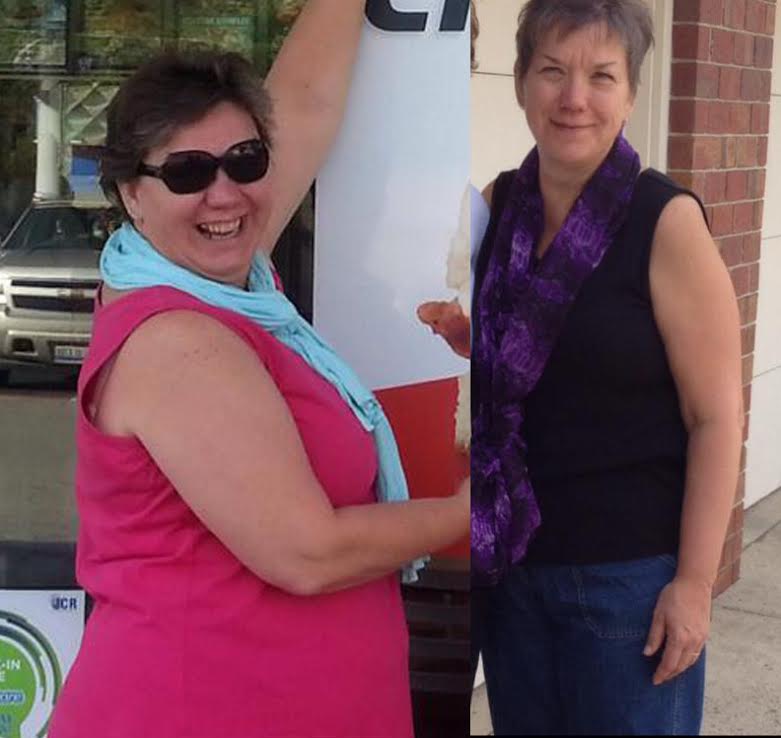
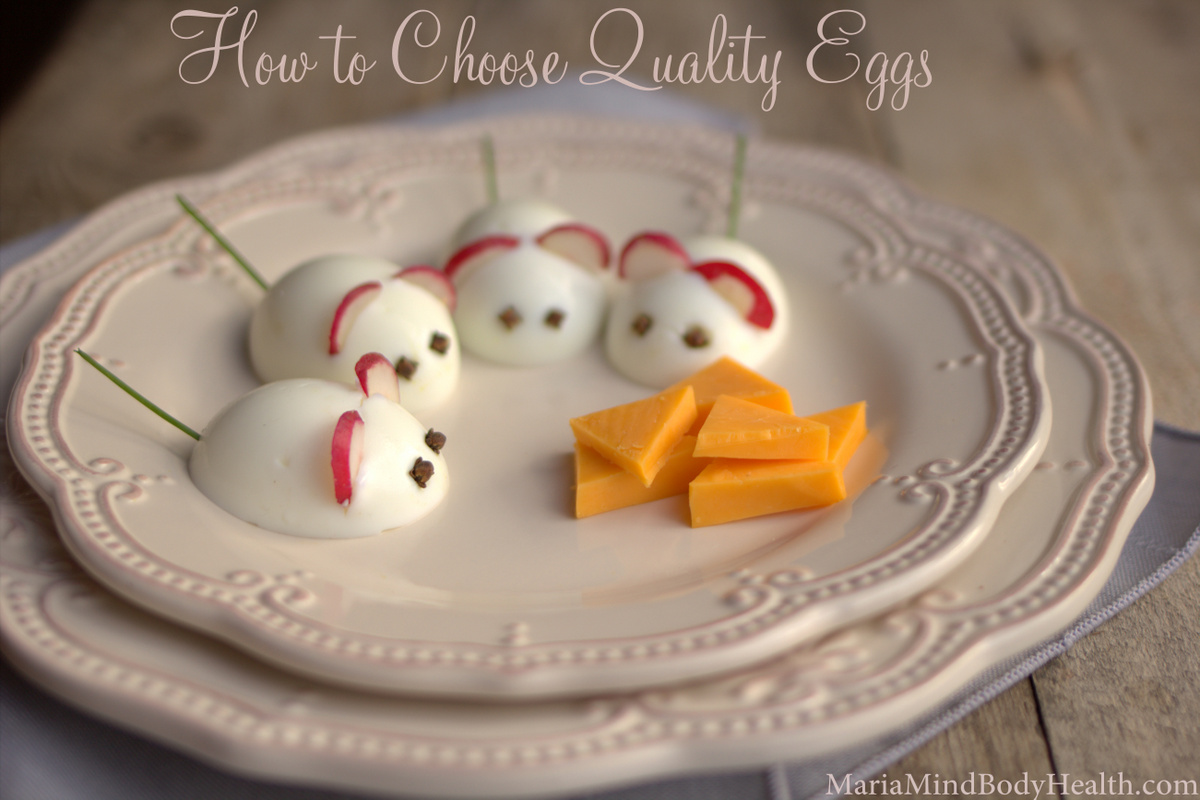
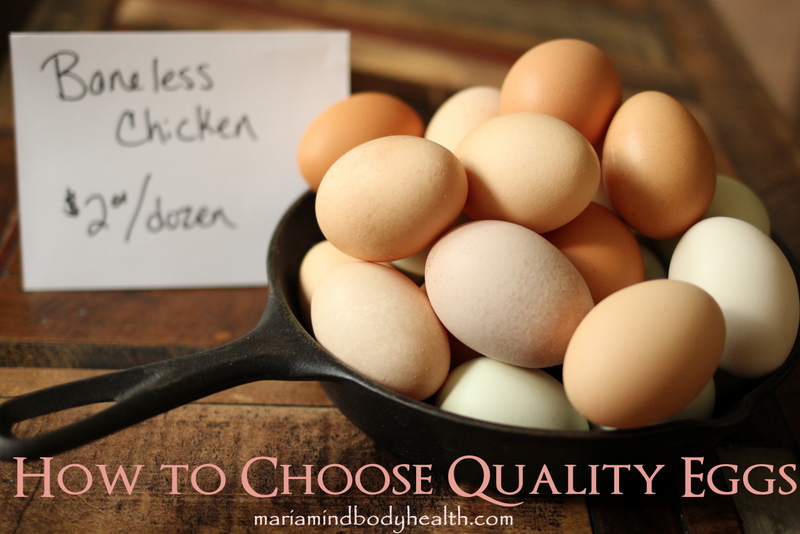

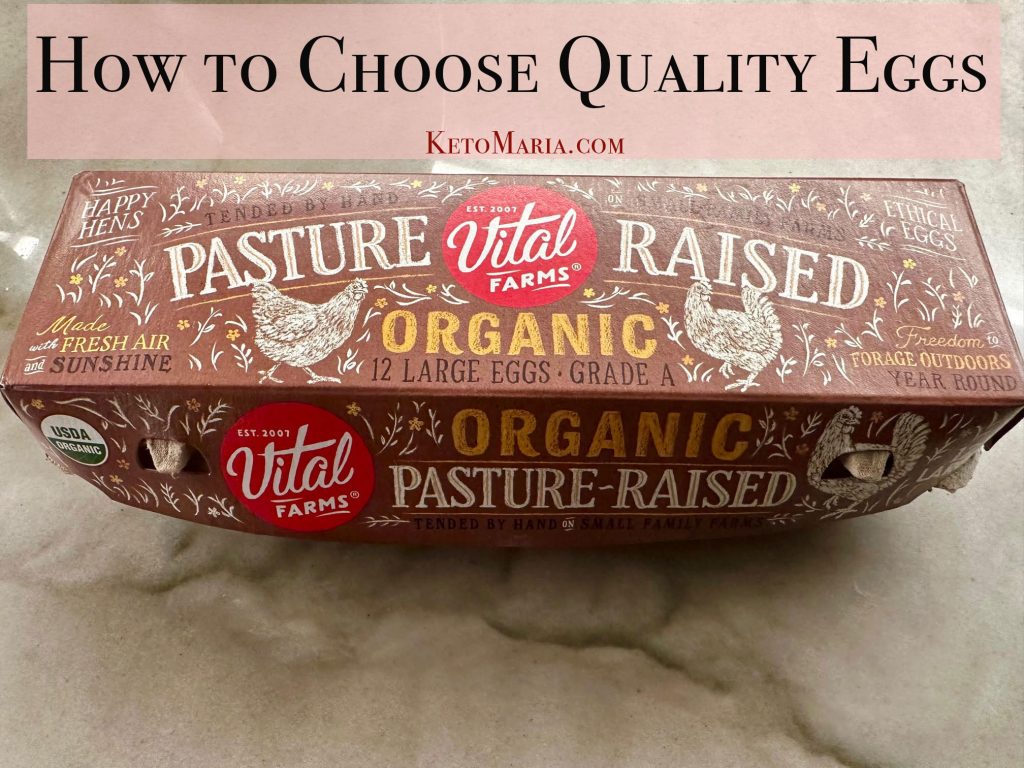


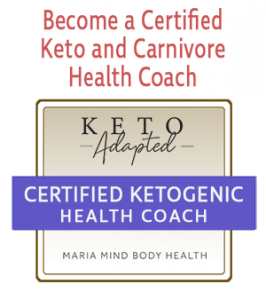







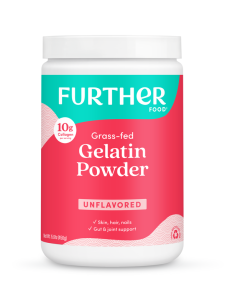

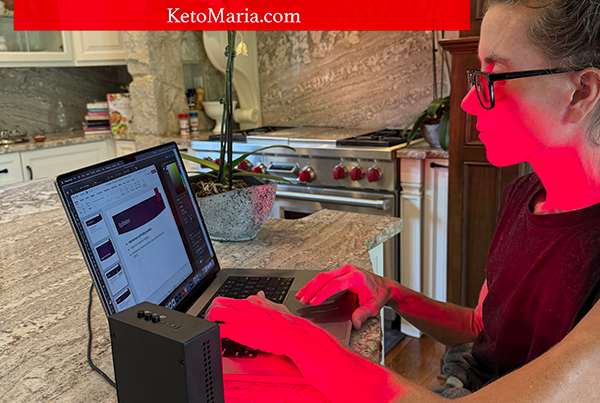
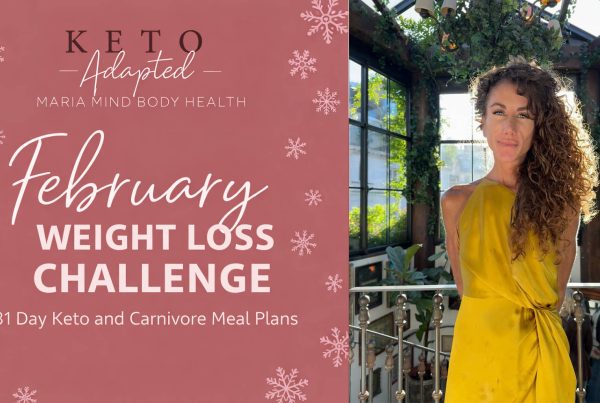

Sounds good! That’s for educating me Maria.
Thank you!
Would you reccomendation purchasing frozen egg yolks from bulk corporations? They’re probably grade b.
No
Thank you for this information. I eat and use a lot of eggs as well and this is good for all of us to know what to look for in choosing the right eggs. Thanks Maria in all you do.
Thanks!
Thanks for this Maria!What if pastured eggs/poultry are illegal in a country?What’s the best choice of eggs should we buy?All the eggs in my country came from chickens fed with soya and corn.. 🙁
Do you have organic? I would look for that. 🙂
So, are the best eggs to buy, organic eggs, if you don’t know a farmer?
Yes, if you don’t know the farmer you are getting them from. 🙂
Great information on eggs. We have had our own chickens for almost two years now, we absolutely love our chickens that all have names and their own personalities. They free range for a couple hours each day and we feed them organic feed. Eggs are 1000% better than store bought eggs in taste. We don’t live on a farm. Many cities allow chickens (hens, you don’t need roosters for eggs) now.
What a great article!! Thanks, Maria! I do wish I had a farm close enough to buy from though… 🙁
Great article, Maria! I am trying now to acquire local eggs from cage free non GMO fed hens. Finding sources where I live is not easy. We used to have a source and the eggs were amazing! It’s been difficult going back to store bought eggs. And then I have to laugh at the labeling on the store bought eggs. “Cage Free Hens fed a 100% Vegetarian Diet” What? Do they not understand that when people are looking for Cage Free eggs we are looking for eggs laid by hens that have been hunting and pecking for bugs/worms and not fed a 100% vegetarian diet? If they are cage free and not able to hunt and peck then they certainly cannot be living on soil and grass. Where are they living? On a concrete slab? Oh my! lol
Crazy! 🙂
WooHoo! Update…I found a new source. A local farm. It’ll be a bit of a drive from my house but she said I can stock up. I love how they do it…go into her barn…get however many dozen I’d like and leave the money in a secure box they have in the barn. No need to call in advance. lol! She’ll even give me a tour of the place if I’d like. Grass fed beef too! And naturally raised pigs.
Awesome!
Hey, I just wanted to clarify the 100% Vegetarian Diet. It’s most likely 100% vegetarian diet free from any animal by-products. However, they are still able to eat all the insects and worms they desire.
Hi Maria,
First time on your site and I truly LOVE it! I was not aware of all the lies that can be associated with the marketing plans with eggs. I was looking for your Keto book and found you have written a whole lot more. Wish you lived closer to me as you are a huge inspiration!
Thank you! 🙂
Thank you for the info. It’s so confusing about how to purchase eggs!
Thank you for the info on eggs. I buy my eggs from a local farmer. I try to buy local produce as well, whenever possible.
That’s a very nice bike you are riding.
Thanks!
Love the “natural” picture. Great movie. Thanks for the information too. The Farmer’s Market is about 2 miles from my house on Saturday mornings. It’s so nice it’s so close, but the good stuff sells out really quick! Luckily we live near (hour or less) a lot of farms too.
11 dozen a week…I feel so much better. We eat 15 dozen a month and I was feeling sooo bad. I know they’re good for me and them, I eat 3 eggs a day myself and they eat 2 eggs each, but I just feel so dumb buying so many eggs!
You must eat alot of breads that need them or something to eat more than we do, even having a dad, which we don’t– wouldn’t account for THAT much more than we eat in our egg-gobbling home! :0
Well, it is 13 eggs a day just for breakfast (boys split 7 and Craig and I each have 3). Then protein breads, recipes, etc. 🙂
Hi Maria! Once again, I hope that my question is appropriate for this thread. I started full-on with the Vegetarian and Eggs plan over the weekend. Feeling AWESOME and my eterna-munchies have already subsided. This alone is huge for me.
Here’s my question: In the intro package info, you suggested initially keeping carbs at 10g or so for the first week or two. Is this NET carbs? There is a protein bar that I enjoy, and it has 10 carbs, but once the fiber is subtracted, it registers at 3 carbs. Do I need to try to watch my TOTAL carb count during this induction, or just net?
That is total carbs. I always use total. I have seen too many clients kicked out of ketosis with too much fiber.
Thank you so much! I’m glad I asked!! 🙂
Our egg consumption has sky-rocketed since we started eating keto style. They are just such a power food!
They really are a perfect food. 🙂
Hi Maria, I thought I’d add a few chicken fun facts for those who are interested. First, I believe that vegetarian eggs would come from a flock without a rooster. Most of our (truly free range) eggs are probably fertilized because of the roosters. Oh, and while we have lots of bugs up here in NH, we found out the hard way that they will stop laying if not given some feed. Hope its not too off-topic. Thought inquiring minds might want to know. 🙂
Thanks!
Question! I currently buy free range from a friend who has a ranch, where we also get raw goats milk for my son. She said at certain times of the year, she has to supplement with feed, which I assume is probably the commercial kind. How bad is this? We can certainly tell a HUGE difference in her eggs versus the store bought organic free range. Thanks!!
Questions regarding Dr. Furhman’s claim that men who eat more than l/2 of egg per week increase chance of prostate cancer by 81% due to Choline intake? Good for you, bad for you, what do we believe?
You can find a “scientific study” that “proves” almost anything. The devil is always in the details. This is where the latest science is going with respect to cancer and it is pointing to a very low carb, high fat diet as being the best.
http://eatingacademy.com/nutrition/war-cancer
False—egg color depends on the color chicken, that’s all.
Serious question….do chickens stop laying when the temperature drops and it gets cold out?
Barb, I was getting my eggs from a farmer coop in IN and during the coldest winter months they would not have any available because of this.
They do for a while then usually adjust and start laying again.
Maria – I am doing the keto diet now, but three years ago I did a diet plan that was to determine foods that were inflammatory to my body. Eggs being one of them. Every time I ate eggs, no matter how many calories I ate I would gain weight. I’m so thankful that I did this before starting keto because I would be eating eggs & not be losing weight and would wonder why. My solution? I was able to switch to duck eggs. They are much less acidic than chicken eggs. It’s a good thing to question if you are doing a keto diet but not losing like everybody else is. Different foods could be the culprit. (I can’t do turkey beef or fish either)
Hi Maria, I’ve read that duck eggs are higher in nutritional content than chicken eggs. More protein, more fat and also much more vitamins and nutrients. Sorry if I’m asking the obvious, do you approve of duck eggs? Many thanks
Yes! They are great! 🙂
Maria, The eggs I purchase say they are fed a Soy based protein’, is this a problem?
Well… It isn’t ideal.
Maria do you know what your neighbors feed their chickens in the winter?
They supplement with organic feed.
This website claims that there IS a difference in the Omega 3 content of “Omega-3” eggs. http://authoritynutrition.com/pastured-vs-omega-3-vs-conventional-eggs/
A study compared the fatty acid composition of 3 types of eggs: conventional, organic and omega-3 enriched (1).
Omega-3 eggs had 39% less Arachidonic Acid, an inflammatory Omega-6 fatty acid that most people eat too much of.
Omega-3 eggs had 5 times as much Omega-3 as the conventional eggs.
The eggs I get at Sprouts say they have 225 mg Omega-3, but I cannot find any data on how much Omega-3 is in a regular egg.
I love all of your information! Thank you for educating us!